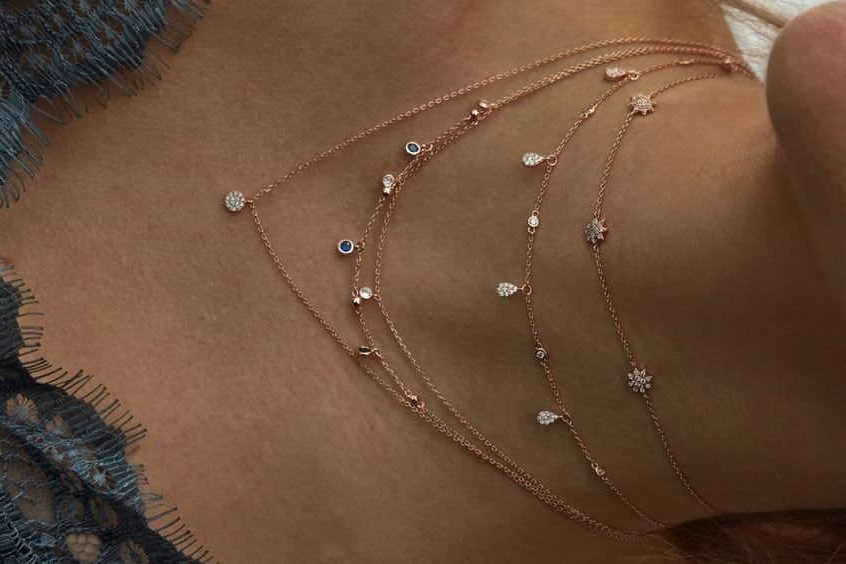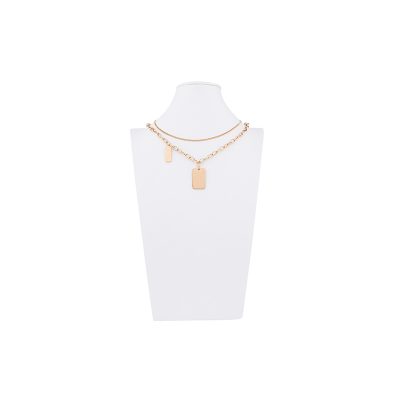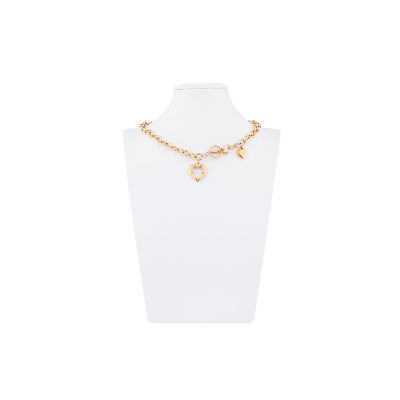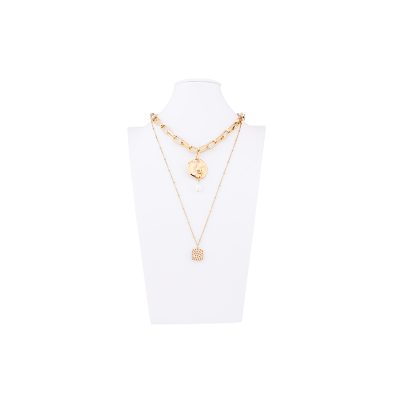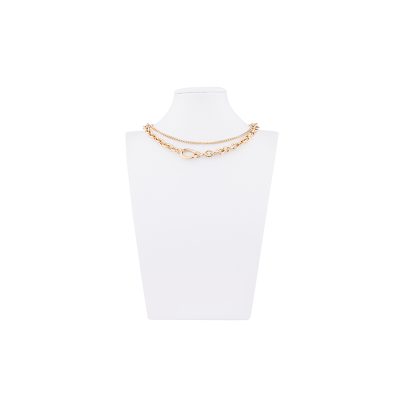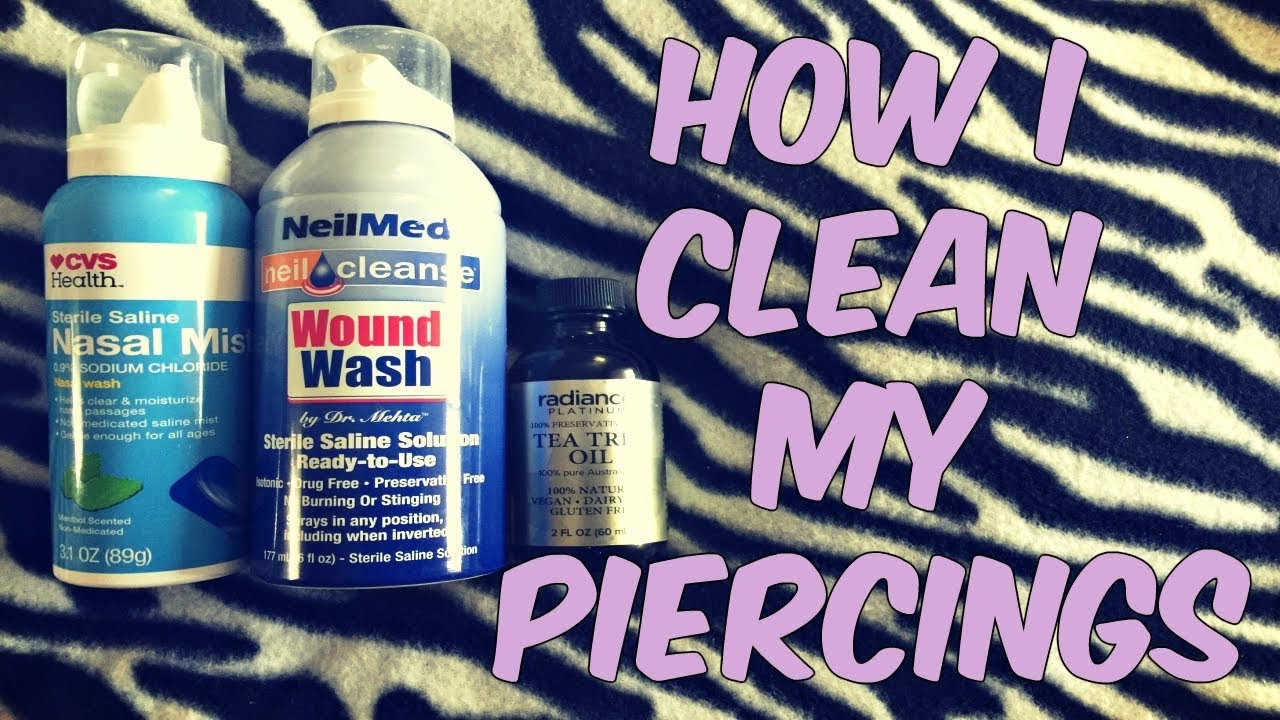What is nickel-free jewelry?
The term nickel-free explains everything to you. It simply means that the jewels contain no nickel.
Unfortunately, although some ornaments are marked as nickel-free to say it has no nickel, in most cases, it still has some nickel.
This means that if you are skin sensitive, you will still react to such jewels. In some countries, you can attach the terminology, nickel-free, or hypoallergenic to your jewels even though they still contain a low percentage of nickel.
You would think that by buying the nickel-free jewel, you solve your problem, but it’s never the case.
So nickel-free or hypoallergenic may not be the answer you seek. That, however, doesn’t mean that all nickel-free jewels contain nickels.
If you find such pieces that you are sure contains no nickel from your most trusted jeweler, you are good to go.
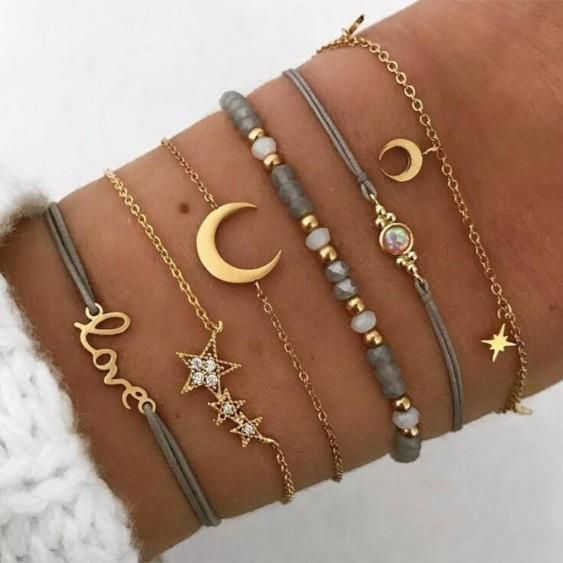
Do you have a nickel allergy?
Nickel allergy occurs when your skin has direct contact with the nickel molecules.
Not every itch you experience though, will be nickel allergy when you are wearing jewels. Some even have other allergies like gold allergy and the likes. But the most common one is the nickel allergy. However, it’s important to note that if you develop an itchy rash when you wear the jewels, you may have a nickel allergy.
White gold and yellow gold often contain nickels, and that’s why people with this allergy will react as soon as they wear it. For those who experience an allergy when wearing gold, consider wearing the 22k gold jewels.
If you still have a rash forming, we can safely say that you have a gold allergy. You should, therefore, never use the 14K or 18K gold jewels as they contain nickel.
The nickel component in the jewelry
If you are in America and suffer the nickel allergy, it’s hard to find a nickel-free jewel even when they claim to be free of nickel. Unfortunately, no measures are in place to make sure the jewels we buy are genuinely nickel free.
The term nickel-free and hypoallergenic don’t always refer to the no nickel. Let’s say it’s a bargaining power the jewelers use, but it’s not safe to use if you have an allergy.
Well, the European union handles nickel differently. We have an EU nickel directive that finds out the amount of nickel that your jewels can have. Over time the amount of nickel in the treasures has substantially gone down.
You will have a jewel with about .05% nickel, which is no longer harmful to some people. They’re further finding out the amount of nickel that goes into the body from the jewels over time.
There’s, therefore, hope that with time we will have no nickel. Let’s say that the EU is working to make sure its people don’t contract nickel allergies.
Is titanium nickel-free?
The moment you find out that you are nickel-sensitive, you will know that many of the jewels in the market are just not for you.
When you react to most metals, you should use the kinds of metals that won’t cause allergic reactions. Titanium and platinum are your perfect jewel materials. If you like to wear jewelry, but you have susceptible skin, you should use titanium because they don’t cause a reaction, and they contain no nickel.
Also, it’s a perfect choice because all three titanium grades don’t have nickel and will not cause an allergic reaction. It’s no wonder we are encouraged to use them with our new piercing.
Sometimes though, you may have the jewels made using the titanium alloy. When they use the alloys that contain both nickel and titanium, it will cause skin allergies.
Remember, you can have other alternatives where the alloys made don’t use nickel. Make sure you point out that you have a nickel allergy when you go out to buy titanium jewels.
In most cases, though, the nickel isn’t used to create the titanium alloy, which means we can safely say that the titanium is free of nickel.
Does cubic zirconia have nickel in it?
Generally, cubic zirconia doesn’t contain nickel. Often the only time you will have the nickel in the cubic zirconia crystal is during the doping process.
If you know what that means, it’s when the factories use other elements to change the color of the crystal. Sometimes they use nickel to give it a yellow-brown color.
But the nickel will not transfer to react with your body as the other metals do. Even those with nickel allergies have used the metal successfully without experiencing any reactions. So this goes to say that some of the cubic zirconia will have nickel, but it doesn’t affect your skin.
This piece is one of the few jewels you can wear even if you have sensitive skin. You can also use it on your ears and not experience allergic reactions.
If you, however, experience a response, then it might be because of the metal prong. So when you are buying the jewel, make sure the metal prong is also free of nickel.
Are hypoallergenic earrings nickel-free?
If you experience skin sensitivity, then you shouldn’t use earrings that will cause allergies as its very uncomfortable. The term hypoallergenic materials refer to any allergy-producing metal or jewel.
It’s important to note that nickel is one of those metals you will have in almost any kind of jewel alloys. Jewelers like it for its sturdiness and affordability. However, it’s also the ingredient to skin reactions. This often happens when the jewel comes to close contact with your skin, just like the earrings do.
If you are buying hypoallergenic metals, you should buy copper, gold, platinum, titanium, and stainless steel. But remember buying the jewel metals above remember that it will cost you a lot too.
Unless the jewelers say the metals they sell feature the pure metals, they may not even be hypoallergenic. Make sure they acknowledge the fact that they are hypoallergenic.
It takes some time for the allergy to occur. You will start to realize the allergic reaction when your ears begin to turn red and itchy. Most of us don’t understand why our new and good looking jewel will cause our skin reaction, but sometimes it does.
So the answer to the question is that maybe. Sometimes you will have hypoallergenic earrings containing nickel, especially if they didn’t use the precious metals. Other times though, they don’t contain nickel.
Does sterling silver have nickel?
I have heard many people ask this question. You should know that sterling silver is made of 92.5% pure silver, and the other 7.5% contains other metals.
The most common additional metal though is copper. If you find such an alloy, therefore, you won’t have nickel allergies because it contains no nickel.
Nickel is an inexpensive metal that most jewelers find more comfortable to use on their jewels. Sometimes you will find other brands use nickel in place of copper. They prefer it just because it’s cheaper to use.
Nonetheless, it’s important to note that it’s not every day that sterling silver is made using nickel. The most common alloy is that of sterling silver and copper. So it’s safe to say that mostly it doesn’t have nickel. This is why anyone with nickel allergy is often encouraged to use sterling silver.
Remember, we are talking about sterling silver jewels, not the plated silver or silver filling ones. Plated silver and silver fillings contain nickel.
Does white gold have nickel?
Some people experience allergic reactions when they wear gold jewels, so don’t worry, you are not alone. It’s vital to note that white gold is never pure gold it’s an alloy of gold and other metals. Well, white gold has a reasonable amount of nickel.
So you should know that if you buy a lower karat, then it has even more nickel and other metals. This metal is by far beautiful and precious, but we can’t deny the fact that it’s not hypoallergenic. The thing though, is that it may also contain other metals other than nickel. Before you rule it out, ask your jeweler if it contains nickel.
Sorry friend, but if you are skin sensitive yet you like the white color of the white jewel, you may not be lucky. This one has nickel, which is much responsible for the color and the strength.
Does yellow gold have nickel?
While gold is a very precious metal, it’s very soft, and you can’t, therefore, mold it to its shapes. This is why most people use alloys to make it manageable. Yellow gold, unlike the white one, doesn’t have nickel. Often, the jewelers use silver and copper to make it manageable.
You may have other people use nickel, but it’s not common. If you still want the gold jewel and are sensitive, choose yellow gold, not white gold.
The sure way to avoid jewel rush when you want to use gold is to do the following.
Contact your jeweler if you are buying the gold jewels to ask whether it contains nickel. It doesn’t matter whether they have the hypoallergenic stamp or not.
The other sure way is to buy the higher grade gold even though it costs a lot more. You will then reduce the risk of having skin allergies. If you buy the gold with 14-18K karat, you will have more metal alloys and thus more nickel. But if you go for higher options like the 24K, then you can be sure it’s in its pure form.
Does copper contain nickel?
The quick answer is no; it doesn’t contain nickel. If you are using pure copper, you should know it’s an element, not an alloy. So by itself, it contains no nickel. The only time you may find the nickel molecules is to make an alloy with the nickel itself.
If you experience an allergic reaction with copper, you should know that you are just copper sensitive, not that the copper metal has nickel.
Does brass contain nickel?
This is the kind of metal that is used as a base metal to other plated versions. It’s rare to find a jewel made of only brass. Now unlike the copper above, brass is an alloy of zinc and copper. So you will have the jewel in this case covered with a layer of gold or silver.
So brass contains no nickel, and if you are therefore reacting, it’s just that you are copper or zinc sensitive and not really nickel.
Does platinum contain nickel?
Anyone who has hypersensitive skin has probably heard of platinum. Since sensitivity is always a very uncomfortable feeling, most of us are always looking for a solution. This is a more precious metal, and one thing you are 100% sure of is that it contains no nickel.
It’s a durable option that will not even tarnish. These pieces, therefore, are hypoallergenic without alloys to cause irritations. It’s the perfect solution.
Is zinc alloy hypoallergenic?
Here the answer is both a yes and a no. The zinc alloy is often a blend of zinc and copper, and, in such cases, it’s hypoallergenic. But sometimes you will have the zinc alloy being made using zinc, nickel, and copper. This type of blend is not hypoallergenic.
If you are sensitive, therefore buy the alloy that has zinc and copper only.
Does nickel-free jewelry tarnish?
Well, the tarnish has nothing to do with the nickel material, and simply put, if it has no nickel, but it still has copper then it will tarnish. Nickel-free jewels are fabulous, especially for the skin sensitive. But whether the metal has nickel doesn’t explain the reason for its tarnish or no tarnish.
Ten articles before and after
What Does Hypoallergenic Jewelry Mean?
15 Best Hypoallergenic Body Jewelry
5 Best Customized Pregnancy Belly Rings
The Pros and Cons of Nose Piercing
Should I get the nose pierced?
Titanium Vs Gold Vs White Gold, How To Choose?
Can Men Also Wear Diamond Jewelry?
How To Choose A Bail For Pendants?
